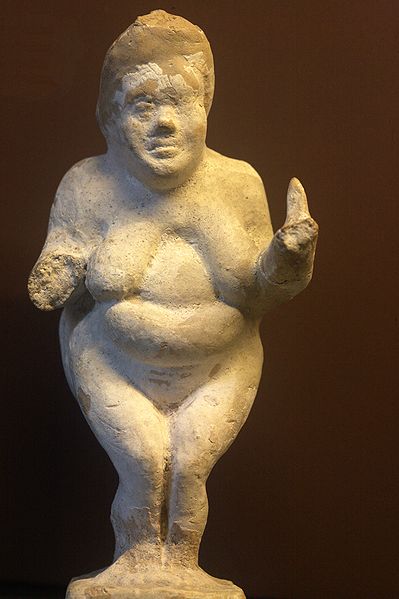
We tend to think of obesity as being a particularly modern disease, but a new "biography" of obesity by cultural historian Sander L. Gilman points out that people have been trying to lose weight ever since ancient times.
So if you're fed up of modern diets, why not try a regime that's thousands of years old?...
The Greek physician Hippocrates (c. 440-370 BC) believed that a person's health depended on having the correct balance of humors in the body - these were blood, yellow bile, black bile and phlegm. Someone who had too much phlegm was likely to be fat (as well as being pale, lazy and cool in character).
So Hippocrates recommended hot, dry foods to help a person to lose weight. He also instructed dieters to eat after "exercise and while still panting from fatigue and with no other refreshment before meals except wine, diluted and slightly cold". For those who wanted to take stricter measures, he suggested that they eat only once a day, take no baths, sleep on a hard bed and "walk naked as long as possible".
The Romans seem to have had a similar hard-work attitude to losing weight - the encyclopaedist Aulus Cornelius Celsus (c. 25 BC - c. 50 AD) recommended tepid saltwater baths, hard exercise, austere food and restricted sleep. But by the 11th century, in the Islamic world, the concept of quick-fix diets had taken hold: the Arabic physician Ibn Sina (980-1037 AD), also known as Avicenna, prescribed an appetite suppressant made of almonds, beef suet, marsh-mallow root and oil of violets, to be taken for 10 days. Can't be any worse than cabbage soup!
Gilman's book is called Obesity: The biography. You can read my review of it in this week's New Scientist.